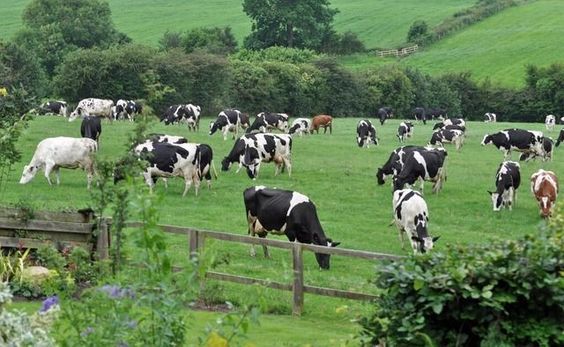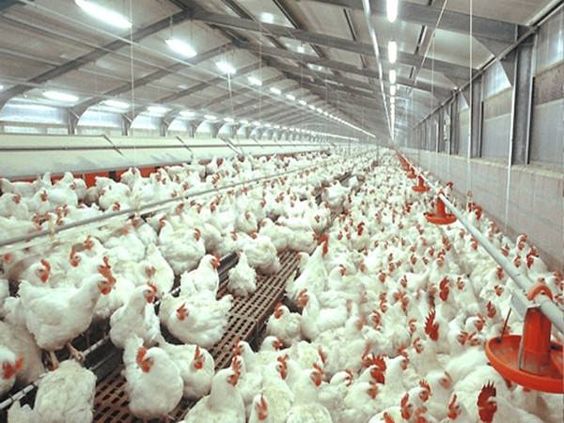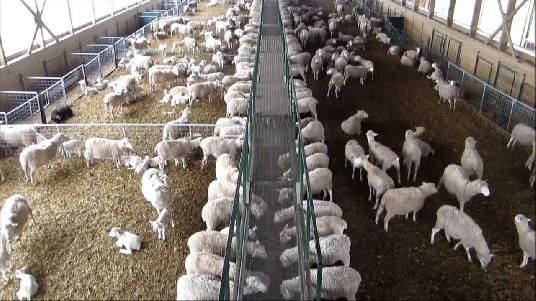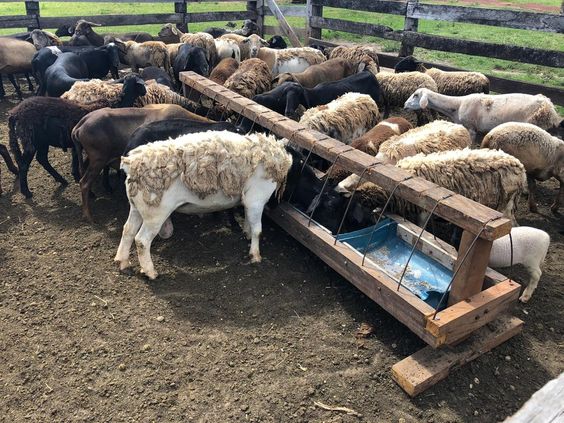Organic Cattle Cultivation: Raising Healthy Animals and Fostering a Sustainable Future
Organic cattle cultivation, also known as organic livestock production, is a holistic approach to raising cattle that prioritizes animal welfare, environmental sustainability, and the production of high-quality meat and dairy products. Unlike conventional cattle farming, which often relies on synthetic fertilizers, pesticides, antibiotics, and growth hormones, organic cattle cultivation emphasizes natural methods and promotes a closed-loop system that benefits both the animals and the land.
This comprehensive guide delves into the world of organic cattle cultivation, exploring its core principles, objectives, undeniable benefits, and practical implementation strategies. We’ll delve into the advantages of organic cattle raising for consumers, animals, and the environment. We’ll also explore helpful ideas and suggestions for those considering transitioning to organic cattle cultivation or integrating organic practices into their existing operation.
Core Principles of Organic Cattle Cultivation
Animal Welfare: Central to organic cattle cultivation is the dedication to ensuring that animals lead lives reflective of their natural instincts and behaviors. This involves providing cattle with ample access to fresh air, sunlight, and spacious pastures for grazing. Unlike conventional systems, organic cattle are not confined to restrictive stalls but are encouraged to roam freely and interact socially with other members of their herd. This environment supports their physical and mental well-being, aligning with the principles of humane treatment.
Organic Feed and Forage: The dietary regimen of organic cattle is composed of certified organic feed and forage, which excludes genetically modified organisms (GMOs), synthetic fertilizers, pesticides, and herbicides. Instead, their diet is enriched with pasture grasses, legumes, hay, silage, and organic grains. This focus on organic feed ensures that the cattle consume a diet that supports their health and growth while upholding the integrity of organic farming practices.
Preventative Healthcare: Organic cattle farming emphasizes preventative healthcare strategies to ensure animal health while reducing reliance on antibiotics. This includes maintaining a healthy living environment, providing a well-balanced diet, and implementing natural methods for parasite control. The approach is designed to prevent illness and promote overall well-being without the routine use of chemical interventions.
Environmental Sustainability: A core objective of organic cattle farming is to mitigate the environmental impacts commonly associated with conventional cattle farming. By eschewing synthetic fertilizers and pesticides, organic practices foster soil health and biodiversity. Additionally, these farms often employ methods to reduce greenhouse gas emissions and conserve water, contributing to a more sustainable agricultural footprint.
Closed-Loop System: Organic cattle farms operate on a closed-loop system where waste products are repurposed into valuable resources. Manure from the cattle is composted and utilized as natural fertilizer for pastures, enhancing soil fertility and reducing the need for external inputs. This system supports sustainability and resource efficiency by recycling nutrients back into the farm’s ecosystem.

Benefits of Organic Cattle Cultivation
For Consumers
-
Higher-Quality Products: Organic meat and dairy products from organically raised cattle are often perceived as having a higher quality due to the focus on natural feeds and the absence of synthetic hormones and antibiotics. Consumers may appreciate the richer taste profile and the perceived health benefits associated with organic products.
-
Reduced Antibiotic Resistance: The elimination of routine antibiotic use in organic cattle helps reduce the risk of antibiotic-resistant bacteria development. This protects consumers from the potential health risks associated with antibiotic-resistant pathogens in conventional meats.
-
Environmentally Friendly Choice: By choosing organic products, consumers contribute to promoting sustainable agricultural practices that benefit the environment. Organic cattle cultivation helps to protect soil health, conserve water, and reduce greenhouse gas emissions.
For Animals
-
Improved Welfare: Organic cattle raised in accordance with organic standards experience a higher quality of life. They have access to natural pastures, can engage in natural behaviors, and receive a diet that aligns with their biological needs. This leads to reduced stress levels and improved overall well-being for the animals.
-
Reduced Exposure to Harmful Chemicals: By eliminating exposure to synthetic pesticides, herbicides, and antibiotics, organic cattle cultivation minimizes the potential for adverse health effects in animals.
-
Stronger Immune Systems: The focus on preventative healthcare and a natural diet in organic cattle farming helps to strengthen animal immune systems, making them more resistant to diseases.
For the Environment
-
Reduced Pollution: Organic cattle cultivation eliminates the use of synthetic fertilizers and pesticides, reducing water and soil pollution. This protects local ecosystems and promotes biodiversity.
-
Improved Soil Health: Composted manure from organic cattle serves as a natural fertilizer, promoting soil health, fertility, and water retention capacity. This leads to healthier pastures and a more sustainable ecosystem.
-
Reduced Greenhouse Gas Emissions: Organic farming practices contribute to lower greenhouse gas emissions compared to conventional cattle farming. This is due to factors like reduced reliance on synthetic fertilizers and improved soil carbon sequestration.

Objectives of Organic Cattle Cultivation
Implementing Organic Cattle Cultivation
Transitioning to Organic
-
Certification Process: The first step for a conventional cattle farm to transition to organic is to obtain organic certification from a government-approved certifying agency. The certification process involves meeting specific standards for animal welfare, feed sources, and farm management practices. The transition period typically takes one to three years depending on the farm’s existing practices.
-
Pasture Management: Organic cattle require access to ample pastureland for grazing. This necessitates developing a rotational grazing system to ensure adequate forage availability and prevent overgrazing. Techniques like rotational grazing help maintain healthy pastures and improve soil fertility.
-
Feed Sourcing: Organic cattle must be fed certified organic feed sources. This includes grass, legumes, hay, silage, and organic grains. Farmers may need to develop relationships with organic feed suppliers or establish on-farm feed production capabilities.
-
Preventative Healthcare: Organic cattle cultivation emphasizes preventative healthcare practices to maintain animal health. This may involve implementing deworming programs based on natural methods, providing parasite-resistant breeds, and ensuring proper nutrition to support a strong immune system.

Challenges and Considerations
-
Lower Yields: Organic cattle production may result in slightly lower yields of meat and milk compared to conventional farming. This is due to factors like slower growth rates and reliance on natural feeds that may have lower energy content compared to conventional feeds with added hormones or growth promoters.
-
Higher Costs: Transitioning to organic farming and maintaining organic certification can be more expensive than conventional methods. This can include the costs of organic feed, certification fees, and implementing additional animal welfare measures.
-
Market Access: Finding consistent markets for organic meat and dairy products is crucial for organic cattle farmers. Building relationships with local retailers, farmers markets, and distributors specializing in organic products can help secure outlets for their products.
Ideas and Suggestions for Organic Cattle Cultivation
-
Diversification: Consider diversifying your cattle operation by incorporating other livestock species that can complement your organic cattle herd. For example, raising poultry can help with pest control, and pigs can utilize leftover food scraps and contribute to manure composting.
-
Agroforestry: Integrating trees into your pastures can provide shade for cattle, improve soil quality, and create a more biodiverse environment. Planting nitrogen-fixing trees can also help reduce reliance on external fertilizers.
-
Value-Added Products: Explore opportunities to create value-added products from your organic cattle operation. This could involve offering grass-fed beef cuts, aged cheese varieties, or organic yogurt made from organic milk. This can help increase profitability and cater to consumer preferences for premium organic products.
Advantages of Organic Cattle Cultivation
Stronger Market Demand: Organic cattle cultivation is benefiting from a significant rise in consumer awareness regarding food quality and environmental sustainability. As people become more conscious of the origins and impacts of their food, they increasingly seek out organic options. This shift in consumer preferences has driven up demand for organic meat and dairy products. By transitioning to organic practices, farmers can position themselves to capture this expanding market segment, catering to a growing number of consumers who are willing to pay a premium for products that align with their values.
Premium Prices: One of the key financial advantages of organic cattle farming is the ability to command higher prices for organic products. Organic meat and dairy are typically sold at a premium compared to their conventional counterparts, reflecting the higher production costs and the value perceived by consumers. These premium prices can help offset the additional expenses associated with organic farming, such as certified organic feed and compliance with stringent regulations. Consequently, this pricing advantage can enhance farmer profitability and provide a viable economic incentive to adopt organic practices.
Improved Brand Recognition: Engaging in organic cattle cultivation can significantly boost a farmer’s brand recognition and reputation. As consumers increasingly prioritize sustainability and ethical food production, farms that emphasize organic methods can differentiate themselves from competitors. Building a strong brand image around organic principles not only attracts customers who value these practices but also fosters loyalty and trust. This enhanced brand recognition can lead to greater market opportunities, partnerships with retailers who prioritize organic products, and an overall stronger presence in the marketplace.






